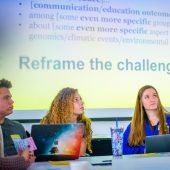
Abstract: While the majority of today’s youth accept climate change as a factual phenomenon, many educators and their curricula lag behind with a continued emphasis on confronting climate skepticism and denial. This article highlights our experience teaching a course, Climate Change and Sustainability, in which we encountered disruptive objections to our lessons from students who believe climate change is happening and desperately want action. However, the all-or-nothing stance of these students stifled conversation, and their lack of engagement with various topics kept them uninformed. To address these issues, we recommend structuring classroom debate around consensus-building activities to practice solution-oriented communication.
Continue ReadingAbstract: Actualization of the 17 sustainable development goals (SDGs) conceived by the United Nations in 2015 is a global challenge that may not be feasible in sub-Saharan Africa by the year 2030, except higher education play a committed role. There is need for higher education to embrace partnership and train people on the concepts of sustainability and sustainable development in the region. This paper presents a model center with curricular framework and partnership structure for the training. The Model Center for Sustainability Studies (MCSS) will enable partnerships with institutions in Africa and in advanced nations, thereby creating a global network for sustainability studies not found in sub-Saharan Africa. MCSS will train and certify public servants, government agencies, policymakers, entrepreneurs and personnel from organizations and students on aspects of the SDGs and sustainability science. It is important to add sustainability into environmental education and make environmental education a compulsory course in higher institutions and a secondary school certificate exam subject in sub-Saharan Africa. MCSS has 11 training modules that can be replicated anywhere in the world. Higher institutions in sub-Saharan Africa should follow this training perspective, to achieved SDGs, predicted 2040 against 2030.
Continue Reading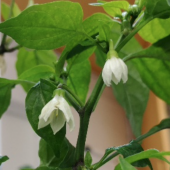
Abstract: To successfully implement the UN’s Sustainable Development Goals (SDGs), we must encourage all citizens to work together to enable a good life not only for us now but future generations too. In this article, we present an experiment carried out in autumn 2020 on a smart aeroponic garden. The goal of the experiment was to learn more about aeroponic cultivation and IoT technology and to acquire the know-how that would enable the participants to influence the environmental burden of food production. Our experiment showed that technology could also be used to introduce sustainable development themes to reach those target groups whose attention could not be attracted through other methods.
Continue Reading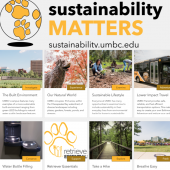
Abstract: Does the use of an interactive GIS web map significantly influence the level of sustainability stakeholder engagement at institutions of higher education? With over 1,000 institutions of higher education across the globe, the AASHE STARS report is one of the main tools available to sustainability professionals. For many institutions, the STARS report serves as a metric of sustainability progress and a source of new ideas and methods, while GIS provides a platform to display information within a context of systems, places, or times. Interactive web GIS allows for digital storytelling and can allow the user to explore specific information pertinent to their interests. This research explores potential links between the use of web GIS platforms and levels of campus engagement as measured by STARS.
Continue ReadingAbstract: While it is widely recognized that effectively addressing climate change requires a drastic reduction in carbon emissions, we nonetheless find ourselves in an impasse, unable to imagine nor bring about a post-carbon future. This is, in part, because climate change is not only a technological problem, but also a philosophical, cultural, and aesthetic problem—an existential crisis of thinking, or perhaps unthinking. To unthink the carbon regime, higher education must forge new thought models and educational platforms that operate in solidarity across disciplinary scales and territories. This report documents a collaborative course development process for a grant-funded transdisciplinary course entitled: Unthinking Oil: Public Architecture and the Post-Carbon Imaginary. In particular, we discuss a virtual Unthinking Oil Workshop held with students and faculty from a range of disciplines. The workshop provoked broad discussions regarding the role of higher education in addressing the many entanglements between climate change, society, and the built environment.
Continue Reading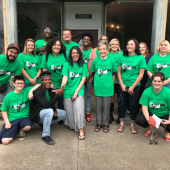
Abstract: In the summer of 2019, the We are All Connected urban-rural youth media program launched Something in Our Water, an eco-media documentary project that investigates the shared problem of water sustainability, public health, and climate change in their communities. This article discusses the transformative experience that the youth from New York City and the Clearfork Valley in the East Tennessee Appalachian mountains had as they learned about the history of multinational coal mine companies’ economic and environmental exploitation of the community, and the fierce and unequal power relations that continue to challenge environmental advocates today. With a focus on the perspectives of one of the Tennessee youth producers, the article reflects on the impact intergenerational learning and multicultural collaboration can have in nurturing future youth and community eco-media activists in Appalachia in the face of deeply rooted local and structural constraints. Through the process of documenting struggles in urban and rural communities, the youth team developed a deeper understanding of how the environmental justice movement cuts across differences to show how everyone is connected and can be empowered to take action.
Continue Reading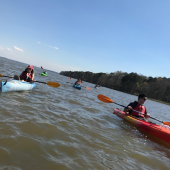
This essay describes a series of interdisciplinary projects addressing environmental issues in Florida where faculty and students from different departments collaborate on complex problems and produce multimedia work aimed at reaching a public audience. Through a series of brief case studies, a model of interdisciplinary experiential education emerges, providing a pathway forward for other faculty to create community engaged projects that have real world impacts.
Continue Reading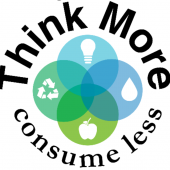
Abstract
On campuses across the world, faculty, staff, and administrators continue to wrestle with how best to foster a stronger sense of belonging and community among first-year college students. Research in the field of education for sustainability (EfS) suggests that utilizing a cohort-based approach to sustainability education can lead to a number of positive outcomes for participating students and the broader campus culture. Meanwhile, student affairs research demonstrates the value of living/learning communities (LLCs) in supporting undergraduate students as they transition to college. This paper showcases the experience of Hobart and William Smith Colleges in implementing a sustainability-themed LLC on its campus, highlighting how one institution is utilizing sustainability education to build community among first-year college students.
Abstract: Energy literacy, defined by the DOE, “is an understanding of nature and role of energy in the universe and in our lives” and, “…is also the ability to apply this understanding to answer questions and solve problems” (U.S. Department of Energy, 2013). Energy literacy is continuously evolving with the development of new feedstocks, technologies, and processes – all of which contribute to the changing landscape of energy production and use. In order for energy education to evolve with the energy field, better tools are needed to assess educational programs. The assessment discussed here is a step towards developing such an assessment for bioenergy.
Continue ReadingAbstract: The research coordination network (RCN) – Climate, Energy, Environment and Engagement in Semiarid Regions (CE3SAR) is a NSF funded five-year project (2012 to 2016, extend to 2017). One goal of the RCN CE3SAR project is to enhance sustainability education in South Texas. To achieve this goal, the RCN CE3SAR steering committee adopted two strategies: creating learning objects and supporting open education. This article reports the process and methods of creating and publishing RCN CE3SAR sustainability learning objects as open education resources.
Continue Reading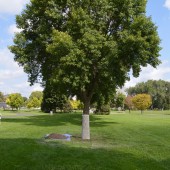
This report describes artist Josh Winker’s Emerald Ash Borer Project in Minnesota, United States.
Continue Reading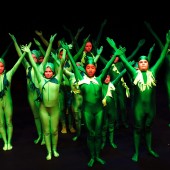
I created Shine, a mini-musical performance for 4th-12th grade students that uses theatre to explore issues of sustainability. It weaves climate science and artistic expression into a funny and powerful story that spans three hundred million years of geological time to convey the relationship between energy, humanity, and climate. Rehearsing each song in this half-hour musical immerses youth in the issues surrounding climate and energy and leads participants in embodying different aspects of climate science and human development that brought us to this point– where our use of fossil fuels is impacting our climate. The first half of the show is professionally scripted, composed, and choreographed to tell the story that has already been told by history. The second half—our future story– is made up of skits authored by local youth to generate solutions for their community’s sustainability challenges. A final song and dance celebrates this achievement and embeds the spirit of commitment into the catchy tune that students will be singing for perhaps decades to come.
Continue ReadingABSTRACT: Sustainability and sustainable development have become one of the dominant topics of discussion among individuals, institutions, companies and universities in response to any global issues with regard to climate change. Many universities including Universiti Sains Malaysia (USM) have taken the initiative to instil sustainability element in its programme offered to its prospective student. USM aims to pioneer in sustainability area and become the reference point with regard to sustainability in Malaysia. In this paper, we provide the background of our USM and its goals towards becoming the sustainability-led university in Malaysia. We also introduce the tool that we have developed to help in calculating the percentage of sustainability content in any document. We utilize the tool to help us in investigating whether sustainability element is fully instilled in Mathematics programme offered in School of Mathematics in USM. We also provide our recommendation and future works to further strengthen this study in the future.
Continue ReadingAbstract: India has compulsory teaching and learning of Environmental Education at all levels of formal education. This was mandated through a Supreme Court directive. This study was conducted using a survey instrument that was used as a proxy of sustainability literacy. The instrument had open-ended questions to gauge the respondent’s perspectives, close ended knowledge-based questions, statements to understand attitudes and their awareness of eco-labelling/certification. The target group of study was the entire batch of 90 students (15 Female and 75 Male) that had joined the postgraduate programme in 2014. The students came with about of year of work experience. The major background was engineering and science with only eight percent with commerce background. All were found to be high achievers in their previous education in school and graduation.
Content analysis of the open ended question showed that 24 percent of the students agreed that economic development at the cost of environment is a short term solution, followed by 16 percent each saying that there is a need to have a balance or economic development should be at the least environmental cost. About seven percent said that economic profit can improve the environment and there is no option left if we need economic development. Only six percent putting comfort over the environment. Although the attitude was very positive, about 62 percent of the students were not able to articulate the difference between the quality of life and standard of living. 75 percent of the respondents supported the compulsory CSR act. 71 percent were in favour of extended producer responsibility. There seems to be a limited understanding of sustainable development and equates it to environmental conservation as any lay person who is informed by mass media. 72 percent did not understand the term Green Washing. The awareness was found to be moderate. Profit maximisation was the understanding as the goal of a business. Nearly half of them were of the opinion that consumers will not pay for environmentally friendly products. Although a high of 89 percent said that eco-labelling has an influence on consumer behaviour, very few of them were aware of eco-labels. Almost all agreed that polluters should pay 67 percent of them also believe that environmental clearances are an impediment to economic growth and 64 percent believe that privatisation leads to better utilisation of resources.
The study shows a pro environment attitude but at the same time a limited understanding of the depth of issues and only the economic centric perspective of sustainable development. Only 16 percent gave some hint of social dimension to sustainable development. Awareness of HDI and GDP was high but connection to quality of life was missing. The environment was high on priority as 24 percent of the students agreed that economic development at the cost of environment is a short term solution, followed by 16 percent each saying that there is a need to have a balance or economic development should be at the least environmental cost. There seems to be a limited understanding of sustainable development and equates it to environmental conservation as any lay person who is informed by mass media.
Also it was found that students were influenced by common business perspective being projected in Indian media. Business is becoming a major driver of sustainable development with increasing production and consumption along with population as a major reason for environmental degradation. It is recommended that social and environment be part of ethical framework of business education. It would be useful if details sustainability literacy assessments are done to inform the business management curriculum for the need to include environmental /sustainability management. The impact of undergraduate discipline was found to influence awareness and perception and hence it is important that the management curriculum removes the gap in sustainability literacy amongst students.
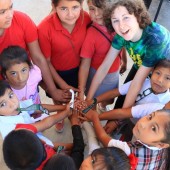
Imagine a world where people hold the highest standards for collaboration, understanding, and mutual respect. Imagine a world where people are engaged and hold a deep commitment to creating genuine, just, and mutually-empowering beneficial relationships. Imagine a world where people have the ability to connect across cultures, appreciate, and deeply listen to different perspectives, understand complex systems – and how we all fit into them – and together co-create solutions to the most daunting of global challenges. Imagine a community of people bringing forward energy and a sense of possibility, and stepping up to create the world we want to live in.
Continue Reading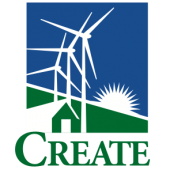
Abstract: When examining energy consumption in human history, it is evident that society is entering a new era where the costs of energy generation from renewable sources are now competitive with fossil fuel generation. In light of this advance, this report examines recent milestones in the renewable energy sector, and projects what the near future might hold. In the years ahead, growth in the renewable industry will create increased demand for a trained workforce of scientists, engineers, and technicians with knowledge of renewable energy. Faculty development and educational programs will play a key role in preparing the next generation of renewable energy professionals. This report highlights the impact of one such initiative that was funded by the National Science Foundation. Educators are called to join the effort to create a sustainable future powered by renewable energy.
Continue ReadingAbstract: This field experiment investigated effects of a descriptive norms-based sign combined with five footprint sticker decal prompts directing individuals to help save energy by using a revolving door, as opposed to a swing door, to exit a mixed-use building. We found that the percentage of individuals using the revolving door increased in both conditions (weekday and weekend day) after we implemented the sign and decals. Notable considerations in creating descriptive norms-based signage to encourage environmentally responsible behavior in mixed use buildings are discussed.
Continue Reading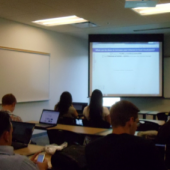
Abstract: Finding time for place-based instruction can be difficult using a traditional ground classroom or online format. This is a case study report showing how blending the two modalities can increase opportunities to go more in depth on environmental topics. This blending of both classroom and online creates a sense of place and encourages teaching with multiple learning styles. The increased classroom flexibility allows more individualized instruction for student’s needs and interests. This report will share how an environmental biology class implemented a blended learning class over two semesters. Results of this pilot show an increased student effort by allowing for more varied learning about the local environment.
Continue Reading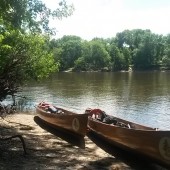
We report an evaluation of a place-based education (PBE) teacher professional development program that aimed to understand the perceived impact of PBE on students and teachers, constraints to implementation of PBE in schools, and strengths and limitations of the professional development program, as identified by teachers. Nine teachers, the full 2014 cohort of participants in Wilderness Inquiry’s PBE professional development program, completed a written reflection exercise and were interviewed following the implementation of a PBE lesson or unit developed as part of their professional development program. Findings indicate that teachers perceived PBE to have several important impacts on students, including stronger engagement in learning, enhanced collaboration, and heightened significance for the concepts learned. Teachers also perceived impact on themselves, including professional growth, sense of fulfillment and an expanded repertoire of teaching approaches. However, there were perceived constraints to implementing PBE, including support from peers and administrators, time, money, weather, and the composition of the class. This research adds to a growing body of research reporting positive impacts of PBE. Teachers’ feedback on the professional development program highlighted specific aspects of an effective professional development program. An enhanced understanding of the benefits of and challenges to PBE and program characteristics that maximize teachers’ time at a professional development program will help educators and curriculum developers to better support, develop, and encourage the implementation of PBE in standardized curriculum.
Continue Reading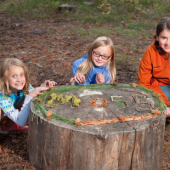
As scientific research evolves information in (K-12) curriculum can quickly become outdated. New research can greatly change the way we teach about science topics and the content we want students to understand. Educators, both formal and informal, can enrich their science curriculum by pulling from current research. Navigating the complexities and unanswered questions alongside scientists can provide a platform for discussion and insight into the nature of science and research that many students are not aware of, providing both a unique experience and valuable lesson on problem solving. Using lessons recently created in tandem with current aviation biofuels project, this article demonstrates the steps educators can take to use ongoing research to create lessons for their own audiences. As often noted in media and current events, finding a reliable, abundant, and sustainable source of transportation fuel is a high priority. One current research effort is being led by the U.S. Department of Agriculture–funded Northwest Advanced Renewables Alliance (NARA), which combines research efforts from industry and educational institutions to build a renewable supply chain for aviation biofuel. This article highlights steps suggested for educators to break down current research to create lessons for their audiences through an explanation of lessons that were developed using NARA research as a foundation. These steps include: Define the theme, Provide the background, Break down the parts, and Draw the parallels.
Continue Reading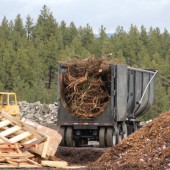
The Northwest Advanced Renewables Alliance (NARA) is a biofuel research project that includes a holistic educational approach to energy literacy. NARA research is focused on woody biomass as a feedstock for biofuels and associated co-products, particularly in the forested areas of the U.S. Pacific Northwest. Extending beyond the science of biofuels, the NARA project examines many social elements of our energy economy, including education. Projects that can combine research and connections to educational venues provide excellent opportunities to expand the impact of grant funded proposals. Keys to making this possible include coordination across disciplines, interpretation of research results, and research processes in the field coupled with investment into integrated educational strategies within the project. This paper outlines elements of the NARA approach to energy literacy, offering strategies for approaches to broader impacts in projects beyond the energy sector.
Continue ReadingThis article explores the relation between politics and sustainability education. It draws upon a political ecology of education perspective to analyze how political and economic processes shape the curricular content of sustainability education, environmental behaviors, and processes of ecological change in Brazil. Examples from research on agroecological education within the Brazilian Landless Workers’ Movement (MST) highlight how national level public policies and economic incentives intersect with the MST’s political ideology to influence the creation of sustainability education programs, development of curricular content, and advocacy around land management practices. Scholars, educators, administrators, and community activists are encouraged to draw upon the political ecology of education perspective in negotiating the political nature of sustainability education.
Continue ReadingFull PDF: Obermille & Atwood JSE Vol 7 Dec 2014 Abstract: The importance of teaching sustainability literacy is readily accepted, but relatively little attention has been paid to the adequacy or preparation of faculty to accomplish this task. At Seattle University, samples of incoming students, staff and faculty completed SUSTLIT, a survey of sustainability literacy. […]
Continue Reading
The idea of progress was developed during the French Enlightenment as an optimistic belief in human potential encompassing intellectual, physical and spiritual health within an enlightened society working to maximize happiness. Progress became equated to and then supplanted by economic growth, assumed to be the means to that progress. We are now suffering from that assumption. It is time to acknowledge the limitations, the failings and the costs of economic growth as a means to bettering society. We need to take the opportunity, thrust upon us by environmental impacts to de-throne growth in order to reclaim human potential for social progress, increase happiness and maybe even save the planet.
Continue Reading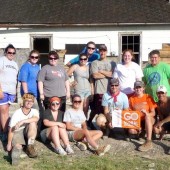
After Hurricane Katrina devastated parts of the Gulf Coast, Susquehanna University (SU) responded by launching the Hurricane Relief Team (HRT) program. In the past six years, SU has sent 16 teams of 15-20 students each and the program has evolved from a basic volunteer service opportunity into a service-learning experience and later into a two-week, cross-cultural service-learning program. While this study is not designed to determine whether participation in HRT, as a specific program, impacted graduation rates, it is intended to provide support for the correlation between civically engaged students and persistence to graduation. Through this example of a cross-cultural, service-learning program, the examination of graduation rates of HRT participants provides evidence of the potentially transformative nature of the experience as derived from historical data.
Continue Reading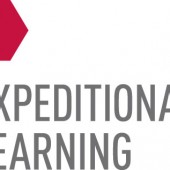
Millions of youth in the United States today are mandated to go to “work” daily. Indoor spaces, hard, plastic seats, and inauthentic menial tasks characterize their workplace. In a time in which the life support systems of our planet are imperiled and more humans are living in communities of poverty and violence, there exists an absurd disconnect between how education is currently practiced and the education that is needed to facilitate deep cultural revolution. Our teachers are taught to teach using the same irrelevant pedagogies, sitting in rows inside institutions of higher learning, taking notes, and memorizing disconnected facts for regurgitation on multiple-choice exams. My argument is that we are not going to be able to implement any true attempts in sustainability education without concomitant change in the way we teach teachers. While publicly funded schools still provide an equalizing agent to potentially provide opportunity for all children regardless of their race or social class, no school can truly educate children to meet the coming demands of our time without experiential teacher education. Expeditionary Learning, a national reform model for public schools, creates lasting change in the praxis of teaching by creating opportunities for teachers to learn in a different way than they have often been taught as students themselves. With continued coaching when they return to their classrooms, teachers are able to create learning environments embodying inquiry and authenticity so that our youth are empowered to affect societal change.
Continue Reading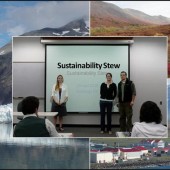
The concepts and practices surrounding sustainability are increasingly the focus of many new post-secondary and graduate education programs. However, the term sustainability refers to a complex mixture of disciplines, methods, contexts, and topics. This complexity is often confusing and can create barriers to learning. Comprehensive understanding of sustainability issues requires that students engage in an active learning process, focusing on context and perspective. Our “Sustainability Stew” curriculum, designed by doctoral students in various fields related to sustainability, is intended to guide sustainability education while offering the freedom to explore complex issues in an active, project-based learning environment. In this paper, we provide background and details for the design of the Sustainability Stew Guide and report results from student surveys on the curriculum itself from one undergraduate sociology course at the University of Alaska Fairbanks (n=37), one community college course at Delaware Technical and Community College (n=11), and one graduate-level research group at the University of Delaware (n=7). Student survey results and instructor reports suggest that the Sustainability Stew curriculum is an effective and innovative approach to sustainability education. Finally, we offer analysis and future directions for similar post-secondary sustainability education. Our objective is to offer a novel exercise to aid educators in teaching and discussing the concepts of sustainability in a way that encourages critical, multi-disciplinary engagement.
Continue Reading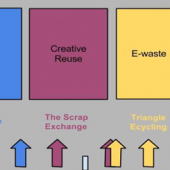
Sustainability capstones at UNC-Chapel Hill use the environmental capstone model—senior team projects for clients—to tackle problems with clear social and economic dimensions in addition to environmental. As one of a set of applied-learning course options in sustainability education, capstones draw students into data-driven and policy-relevant research and development, and generate useful products for campus and community clients.
Continue Reading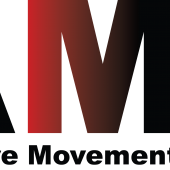
This article explores how to create a sustainable adventure movement and increase the use of Outdoor Adventure Education as an innovative educational tool in schools, communities and businesses. Taking a whole system approach and applying leading social movement and diffusion theories, the Adventure Movement Project seeks to develop a framework for integrating Outdoor Adventure Education into whole communities to inspire servant leadership, achieve sustainability, and drive innovation. Original research presented shares why Outdoor Adventure Education matters and how a socially just and sustainable planet can thrive with Outdoor Adventure Education acting as a highly effective catalyst to drive social, economic, educational, and environmental change.
Continue Reading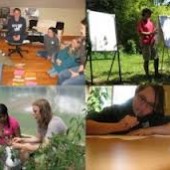
To live up to UNESCO’s definition of a sustainable development education that empowers youth with the knowledge, attitudes, motivations, commitments, and skills to solve and prevent the world’s total environmental problems, youth must be able to find meaning in the curriculum based in their own experiences and expanded through shared group experiences. An environmental-based experiential curriculum with a positive development focus can help youth reclaim their learning process and reconnect with their communities. However, without critical analysis, students, especially marginalized students, cannot develop the tools and competencies to truly understand their environment and their place within it. Linking environmental and experiential education with critical theory provides students the opportunity to develop their leadership and gain the social and cultural literacy skills needed to come in from the margins.
Continue Reading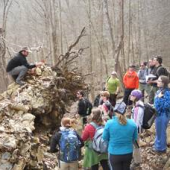
In this article I articulate what it means to understand curriculum as bioregional text. I utilize a theoretical mode of inquiry to explicate the values of bioregional education while integrating the discussion into the reconceptualized field of Curriculum Studies. The discussion addresses the value of direct experience, in our bioregion, and explains the significant contribution that can be drawn from developing a clearer understanding of our bioregional autobiography.
Continue Reading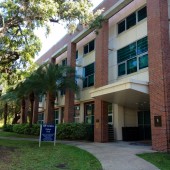
As sustainable construction continues to increase its market share in the commercial construction realm there is continued discussion regarding providing adequate exposure to sustainable practices in the undergraduate curriculum. Sustainable construction, specifically United States Green Building Council Leadership in Energy and Engineering, places an emphasis on design integration, professional and industry education, and market transformation – both in products and installation techniques. The question at hand is how to prepare construction and engineering students for what is quickly becoming the norm for construction in the United States. Previous research has discussed integration of curriculum and has found there are no existing standards in place. This study finds that when sustainability is viewed as integral to high performance design and delivery that course development is more a function of integration than revision. This paper reviews the progress made since 1998 to present in undergraduate integrated and supplemented education courses in a prominent four year construction program. The question of accreditation requirements and initial career offerings are also discussed. Integrating sustainability into the curriculum is perceived to enhance the students’ learning and provide a superior experience.
Continue Reading
Jack Turner (2005) once wrote “we treat the natural world according to our experience of it.” How are our students “experiencing sustainability” in U.S. colleges and universities? With the rise in popularity of education for sustainability initiatives in both K-12 and higher education, experiential education has been championed as a key pedagogical approach moving forward. Experiential curriculum projects come in many different forms. From outdoor education and service learning to so-called “hands-on” applied work on campus projects and field science research, students are increasingly “learning by doing.” Yet far from just another methodology to be used in the classroom, the rise of experiential approaches indicates deeper tectonic shifts in higher education. As students and faculty engage in this form of learning, questions are raised as to the historic divide between theory and practice, the separation between so-called “town” and “gown” cultures, the curriculum and the co-curriculum, and what forms of knowledge and skills are of the most worth to a 21st century graduate. This analysis first briefly surveys the theoretical history of experiential education before proceeding to consider two specific curriculum projects at the intersections between sustainability and experiential education—place-based learning and project-based learning. The analysis concludes with a discussion of the possibilities and limitations of current forms of experiential education in higher education and a consideration of future trends and developments.
Continue Reading
This report describes a unique technique for presenting an introduction to sustainability science course that is both required for sustainability science majors at a large Mid-Atlantic state university and a general education non-laboratory science course. The World Scientists’ Warning to Humanity, released by the Union of Concerned Scientists in the late 1990s, serves and an indictment of humanity. The course mimics a trial as it proceeds from the indictment through an arraignment, pre-trial, trial, verdict, and sentencing with students acting both as the accused and the jury.
Continue Reading
The field study (or short-term study abroad) creates a successful hybrid of study abroad and field research. These short-term educational adventures (edu-ventures) give environmental or sustainability students opportunities to gain practical knowledge while traveling domestically or overseas. In addition, it presents the opportunity for both faculty and students to extend the traditional Boyer model of scholarship, a reputable professoriate model, by developing continuity. The field study fulfills the four pedagogical goals of the Boyer model: creating research opportunities (discovery); breaking down the silos of traditional academic departments (integration); acting as consultants on-site (application); and educating students beyond the faculty members’ expertise (teaching). In addition, these field studies fulfill a fifth goal: building relationships and transgressing time (continuity). The development of this Boyer Plus model from a field-study experience serves as a tremendous tool for colleges, universities and professors to build the opportunities and necessary pedagogical skills for both traditional and non-traditional students.
Continue Reading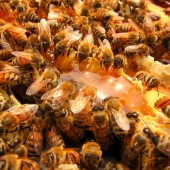
The Ashland Apiary Project is a multi-pronged, multi-aged learning design that uses beekeeping as a thematic avenue for hands-on experiential learning and the cultivation of land stewardship. The project is a student-led, collaborative effort by Southern Oregon University to establish an on-campus apiary that serves as a model of place-based and community-based education for a wide audience of students in an elementary, secondary, and collegiate setting. Through the Ashland Apiary Project, the pedagogic approach of “apiary-based learning” is considered in the field of sustainability education.
Continue Reading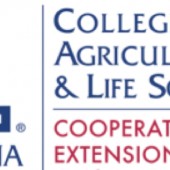
While a number of universities across the nation have sustainability education programs, land grant universities and their Cooperative Extension departments are in a particularly advantageous position to foster sustainability education. At the University of Arizona (UA), this is being accomplished through its Cooperative Extension cadre of education programs in agriculture; youth development; natural resources; horticulture; family, consumer and health sciences; and community and economic development. A working group within UA Cooperative Extension has been tasked with evaluating the reach of sustainability concepts while developing opportunities for its faculty to further integrate sustainability education into its programs, such as through student externships. Preliminary evaluation results indicate that Extension’s programs positively embody the concepts of sustainability without creating the need for new, deliberate programming around sustainability education.
Continue Reading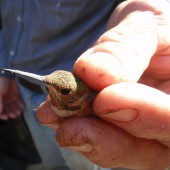
This paper explores examples of the ways that indigenous and traditional stories are tools to guide humans through complex interactions with ecosystems and to remember our shared fate with the land. Traditional stories are not mere superstition or poor substitutes for scientific thinking; they are made up of extremely complex, finely coded information on human subsistence and infused with elements that ensure they continue to be told and remembered
Continue Reading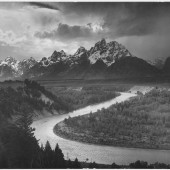
This article provides an overview of the primary themes embedded within bioregionalism. The framework for the paper is built around the CIDER acronym—compiled by the author—and includes: Connecting to our “life place,” inquiring into the interplay of cultural and ecological landscapes within the bioregion, decentralizing, emphasizing natural boundaries, reinhabiting as a culminating concept and practice. The CIDER acronym is then discussed in the context of applying bioregional thinking and practice to the broad field of education.
Continue Reading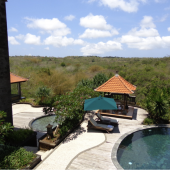
This article offers a brief summary of sustainability in general in the hospitality and tourism industry and introduces content information related to sustainability that may be helpful for use in hospitality and tourism education. Specifically, the paper focuses on the following question: What is the emphasis of sustainability education in the hospitality and tourism field? Themes in sustainability education in the lodging, meetings and events, and food and beverage sectors are identified, applications of sustainability practices in hospitality and tourism operations are introduced, and views about the future direction of sustainability education in this field are provided.
Continue Reading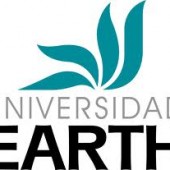
The purpose of this paper is to propose environmental education and eco-literacy as components of education for sustainable development through the examination of an eco-literacy program offered by EARTH University in Costa Rica to rural community public schools. To illustrate these components we examine the development of a program/curriculum used in 17 elementary schools. We draw two important conclusions from our examination. First we found that external national political, social, and economic forces were important to the program’s success. Secondly we illustrate the importance of developing and programs that address the specific needs and issues of the local region.
Continue Reading
Two intellectual powerhouses from South America, Gudynas and Acosta make the case for a new way of understanding human fulfillment, authentically Latin American in origin with indigenous roots—the idea of el Buen Vivir. We cannot translate their ideas “the good life” or “quality of life,” both thoroughly Western concepts, and we must hope that el Buen Vivir, with its entire notion of well living, fulfillment and plenitude in connection with other humans and the elements of the landscape becomes incorporated into a healthy and sustainable idea that replaces development. Gudynas and Acosta make the case that these ideas are emerging from their indigenous roots and have been a big part of the political, social and economic success of the “new left,” as evidenced by their foundational role in the constitutions of Bolivia and Ecuador.
Continue Reading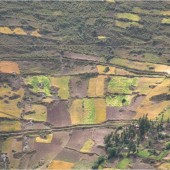
In this comprehensive review, Kenneth Young gives a robust and sweeping analysis of how global climate change might affect landscapes in the global South. His unique emphasis on including the human element, within both a current societal and historical-political framework—provides a hefty morsal of food for thought regarding the multiple and complex ways in which real cultural and natural landccapes will respond to global warming.
Continue Reading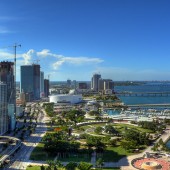
Reza Banai makes a strong case for urban sustainability as the perfect area of practice to apply a broad range of effective pedagogies. The complex multi-disciplinary nature of urban design means that it requires advanced, high-level, analytical, holistic, hands-on pedagogies to bring about real solutions for sustainability. With urban popuplations booming worldwide, chances to apply Banai’s nexus between urban sustainability and a robust education abound.
Continue Reading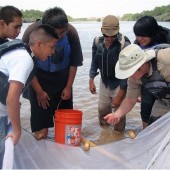
Maceo Carrillo Martinet calls for bringing the local geography of sustainability into STEM (Science, Technology, Engineering, Math) curricula, all the while framing this call in the global context of climate change. He makes a convincing case, based on the experiences of the Instituto Querencia in New Mexico, for using three principals to guide STEM curricula: students as agents of change; diverse cultural perspectives enrich the curriculum; and involve the local community—wherever you might be—in the curriculum.
Continue Reading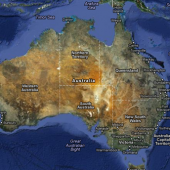
In this report from “down under,” Linda Zibell recounts the triumph of eco-centric language over a techno-centric approach to bringing sustainability into the Australian school curriculum. She brings deep insight into deconstructing the power of word choice and language patterns with real examples of how school-age kids might perceive and understand the words we use.
Continue Reading
Sponsoring the Journal of Sustainability Education The Journal of Sustainability Education is actively seeking partners, sponsors, and donors to collaborate on moving the field of sustainability education outward and deeper. The Journal is a premiere publication with dynamic content: a blend of peer reviewed and timely interviews and media pieces that draws 700,000 web views per year. […]
Continue Reading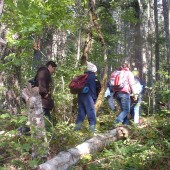
Two northwest naturalists offer a critical perspective on sustainability education by suggesting that, in order to inspire people enough to make changes in their perceptions and behaviors, sustainability education must embrace the central role of acquiring ecological knowledge through direct and shared experience in the natural world.
Continue Reading
In this thoughtful, and fundamentally practical, down-to-earth essay, Christopher Haines puts architects squarely on the front-lines of sustainability education. He shows us, with real applications based on thoughtful inter-disciplinary analysis, how the complexities an architect faces in designing a building extend their tentacles into every aspect of sustainability—from environment to economics to social and psychological considerations.
Continue Reading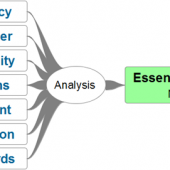
Bryan Nichols calls out to JSE readership to get involved in defining what essential ecoliteracy includes. His comprehensive, interactive methodology has worked from a literature search-and-survey analysis to create a mind-map of the domains and components of essential ecoliteracy. Readers can find out more here; then play with the mind-map online and send Nichols an online or print survey.
Continue Reading